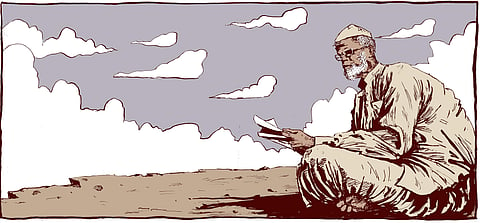No one knows exactly where the finish line is in a short story competition – except according to the stories that got over it. The sample is usually small and the criteria qualitative. What is surprising then is that one can spot trends or tendencies at all.
In November 2019, we announced a spontaneous short story competition, on a short leash – the deadline was just two weeks away. We thought it would be nice when we launched our new site in the new year, to give Southasian fiction an early and prominent place on it. Our Himal-stalwart colleagues told us to expect around 60 entries. We got 319. Some writers even told us they'd quickly written a story to submit. Six members of the Himal editorial team – all of us in fact – were drafted to discuss and decide.

